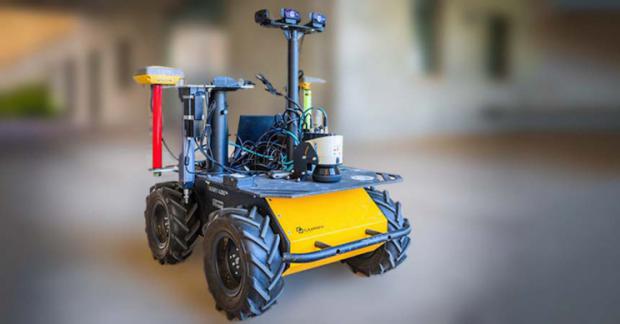
Breaking News
 Is the White House Actually the Overlook Hotel East?
Is the White House Actually the Overlook Hotel East?
 QatarEnergy Declares Force Majeure As One-Fifth Of Global LNG Supply Goes Dark
QatarEnergy Declares Force Majeure As One-Fifth Of Global LNG Supply Goes Dark
 Primary Losers: Crockett Cries 'Disenfranchisement', Crenshaw Crushed
Primary Losers: Crockett Cries 'Disenfranchisement', Crenshaw Crushed
 U.S. Submarine Sinks Iranian Warship In First Torpedo Kill Since WWII
U.S. Submarine Sinks Iranian Warship In First Torpedo Kill Since WWII
Top Tech News
 US particle accelerators turn nuclear waste into electricity, cut radioactive life by 99.7%
US particle accelerators turn nuclear waste into electricity, cut radioactive life by 99.7%
 Blast Them: A Rutgers Scientist Uses Lasers to Kill Weeds
Blast Them: A Rutgers Scientist Uses Lasers to Kill Weeds
 H100 GPUs that cost $40,000 new are now selling for around $6,000 on eBay, an 85% drop.
H100 GPUs that cost $40,000 new are now selling for around $6,000 on eBay, an 85% drop.
 We finally know exactly why spider silk is stronger than steel.
We finally know exactly why spider silk is stronger than steel.
 She ran out of options at 12. Then her own cells came back to save her.
She ran out of options at 12. Then her own cells came back to save her.
 A cardiovascular revolution is silently unfolding in cardiac intervention labs.
A cardiovascular revolution is silently unfolding in cardiac intervention labs.
 DARPA chooses two to develop insect-size robots for complex jobs like disaster relief...
DARPA chooses two to develop insect-size robots for complex jobs like disaster relief...
 Multimaterial 3D printer builds fully functional electric motor from scratch in hours
Multimaterial 3D printer builds fully functional electric motor from scratch in hours
 WindRunner: The largest cargo aircraft ever to be built, capable of carrying six Chinooks
WindRunner: The largest cargo aircraft ever to be built, capable of carrying six Chinooks
Researchers Develop Robot That Tells Farmers When to Water Crops

Knowing when exactly to water plants can be challenging enough for an average gardener. For the agriculture industry, it's a huge task that has called for leaps in innovation over the years, so as to help countries manage their water resources wisely.
Now, a group of researchers from UC Riverside and UC Merced has received a grant for more than $1 million from the U.S. Department of Agriculture through the National Science Foundation's National Robotics Initiative to take on the challenge.
The result? The group is developing a robotic pressure chamber that autonomously samples leaves and immediately tests them to provide data on a crop's watering needs.
An autonomous leaf tester
In order to determine water needs, growers typically hand-pick individual leaves from plants before sending them off-site where they are put in pressure chambers. These chambers allow analysts to apply air pressure to determine when water begins to leak from the leaf stems, showing how soon the plant will need to be watered.

 RNA Crop Spray: Should We Be Worried?
RNA Crop Spray: Should We Be Worried?

